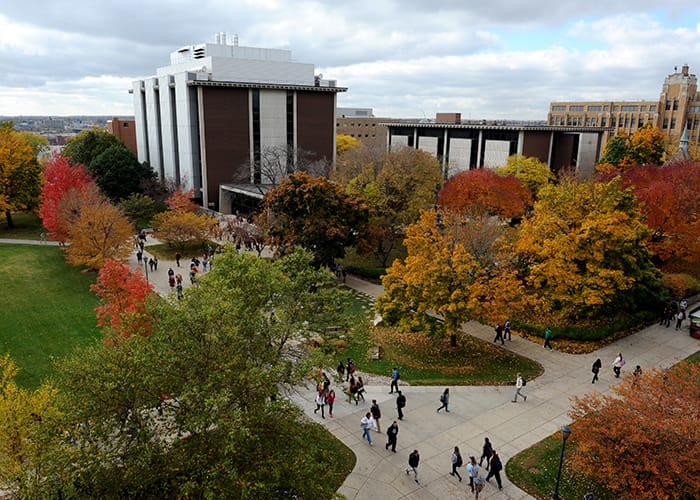2009 Way Klingler Fellowships Award Recipients
Way Klingler Fellowships are for full-time regular faculty at the associate or full professor rank who have potential for significant scholarship. In 2009, one Way Klingler fellowship in science and one in the humanities were awarded. The science fellow receives $50,000 annually for three years, and the humanities fellow receives $20,000 annually for three years. Funding for the science applicant is for research that requires higher-expense items, such as equipment, supplies and research staff. The humanities recipient can use the funding for critical research that requires time, access to information and travel.
2009 recipients
Dr. Robert Scheidt, associate professor of biomedical engineering
Biomedical engineer wants to make neurological injuries less debilitating
When the blood flow to a region of a person's brain is obstructed, the result may be a catastrophic, and often fatal, injury. If the victim survives, he likely faces severe, debilitating injuries. Dr. Robert Scheidt, associate professor of biomedical engineering and recipient of the Way Klingler Fellowship in science, is hoping to change that.
Scheidt is researching sensorimotor learning — the process by which the brain learns to control motor actions such as reaching and interacting with dynamic objects. "Think about the challenge of bringing a spoonful of peas to your mouth without spilling," said Scheidt. His research integrates one-of-a-kind robotic tools developed at Marquette with neuroimaging techniques. His goal is to better understand how impaired sensory processing in the nervous system limits one's ability to perform activities of daily living.
Findings may be able to be applied to stroke victims and autistic children. "Because interacting with objects is fundamentally important to maintain a high quality of life, we need to optimize technologies and therapies for motor rehabilitation in patients with a neural injury or neurodevelopmental disorders," said Scheidt.
The fellowship award will allow Scheidt to generate the research data needed to develop federal grant proposals to continue his work beyond the three-year Way Klingler fellowship.
Dr. Diane Hoeveler, professor of English
English professor finds religious intolerance in 200-year-old literary propaganda
Although the subjects of her research are more than 200 years old, Dr. Diane Hoeveler sees relevant parallels in today's society. Hoeveler, professor of English and recipient of the Way Klingler Fellowship in the humanities, is researching English gothic chapbooks and their effect on Catholic emancipation between 1791 and 1829.
As part of her fellowship, Hoeveler is planning three summer research trips — to the University of Virginia in 2009, Germany in '10 and England in '11 — to examine as many of the 1,500 known chapbooks as she can. The chapbooks were typically 32- or 76-page publications that selectively condensed and manipulated longer gothic novels that were intended for the middle and upper classes, according to Hoeveler.
Chapbooks, Hoeveler thinks, were meant to incite the recently literate lower classes who were largely opposed to Catholic emancipation. Hoeveler has examined about 20 chapbooks and sees evidence that they were developed to influence anti-Catholic sentiment throughout England. "I was amazed at how virulent, crude, volatile and angry the voice was in these chapbooks," she said.
Hoeveler recognizes similar sentiment in religious intolerance today. "It shows how popular media and popular journalism can be used to stir up people by presenting 'others' as demonized," she said.
